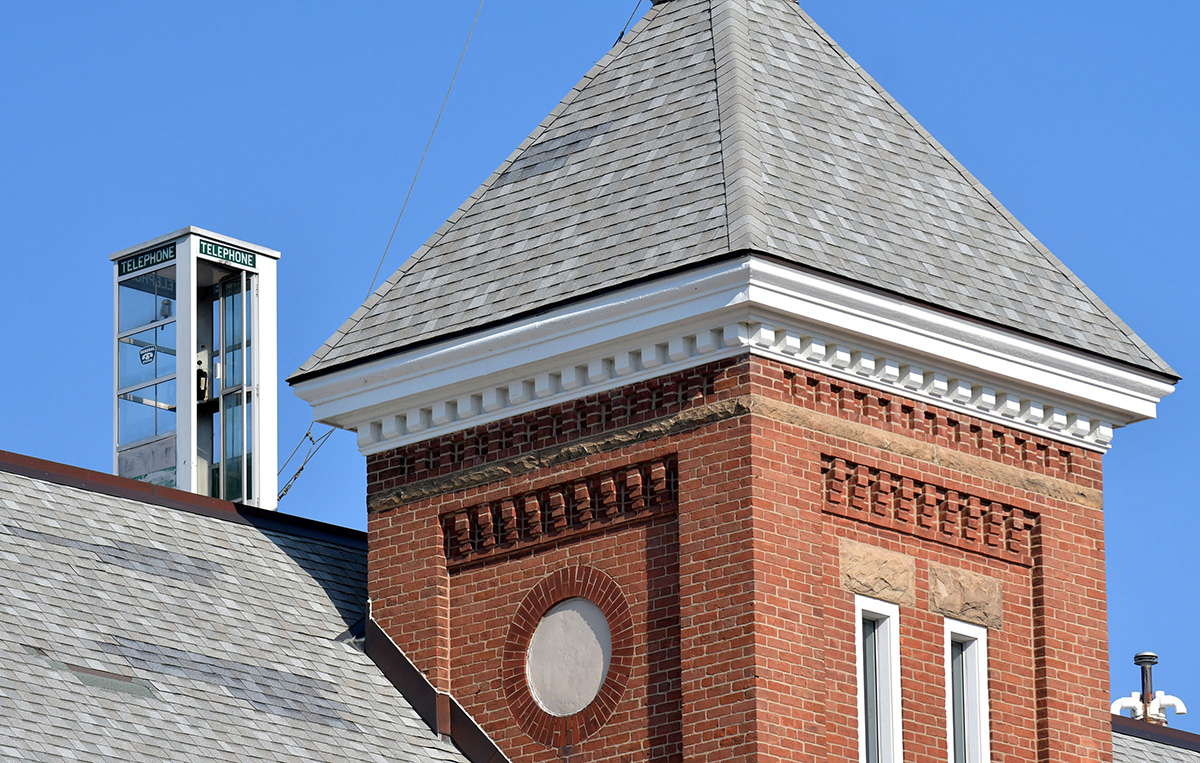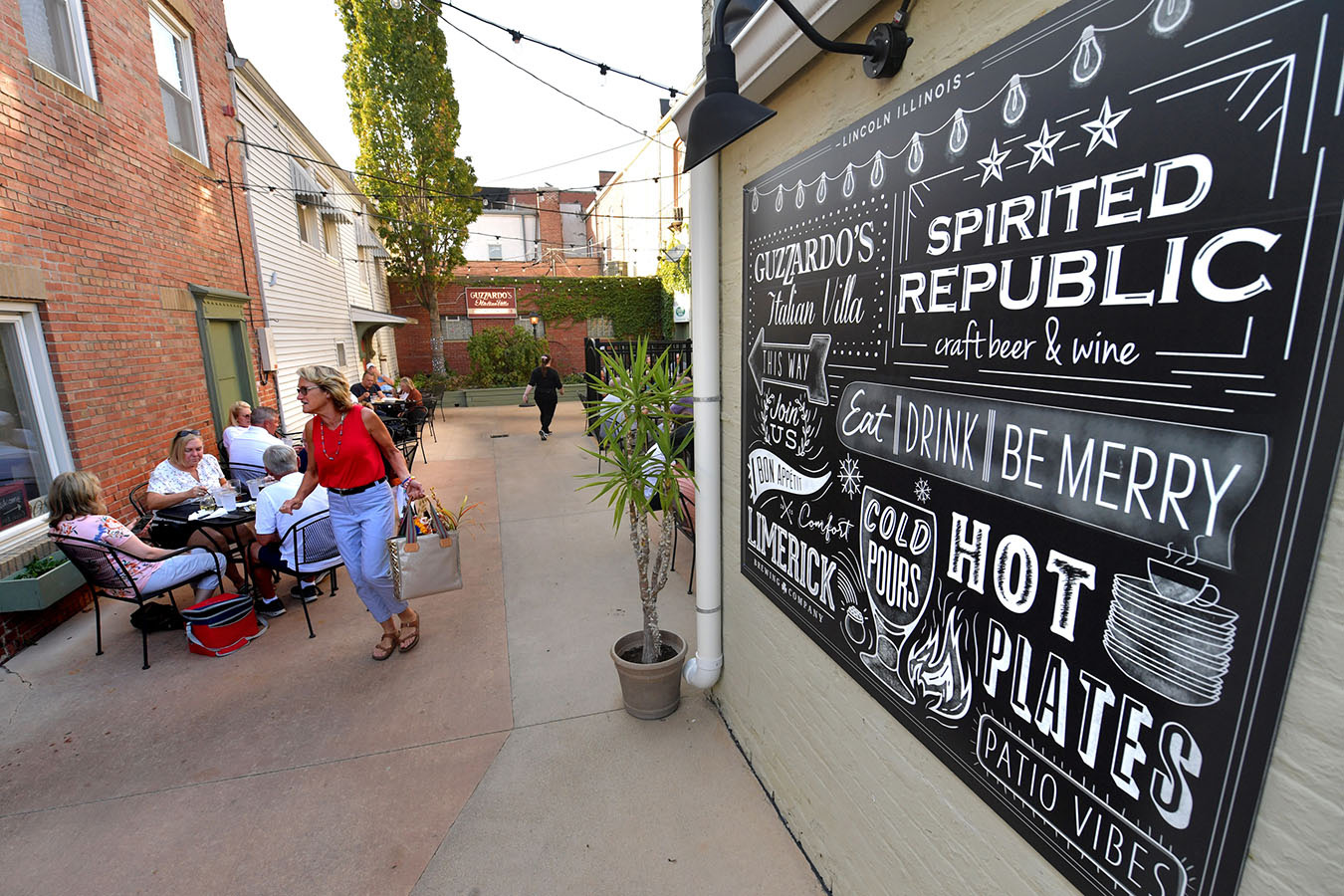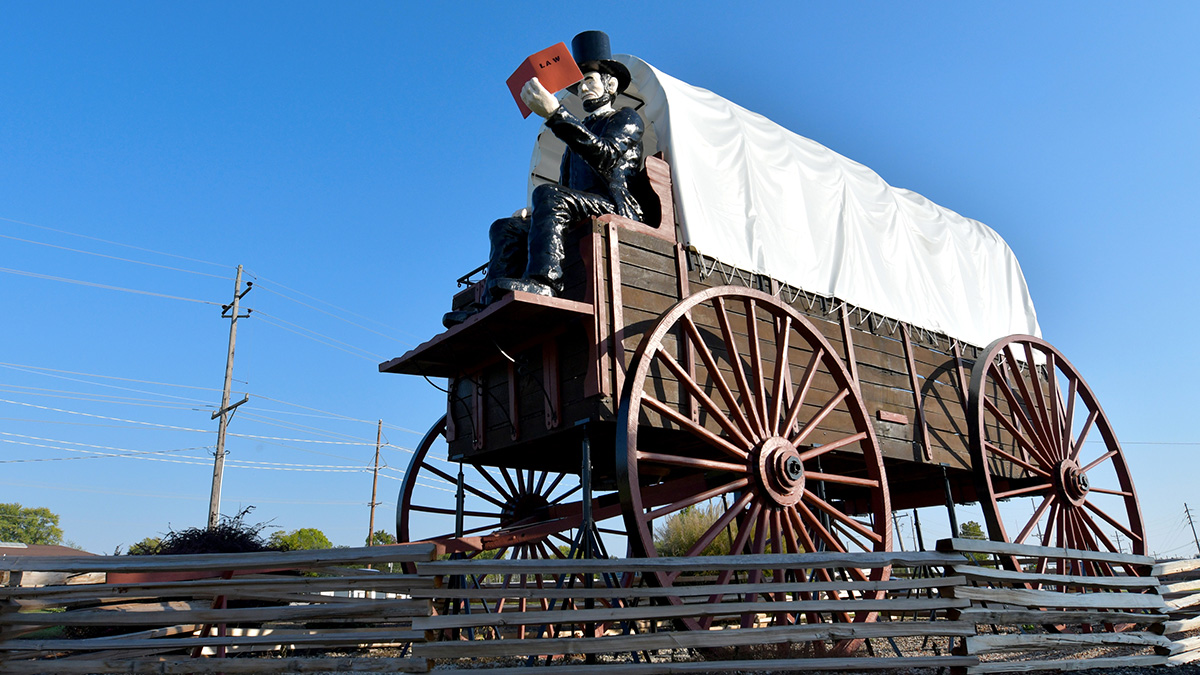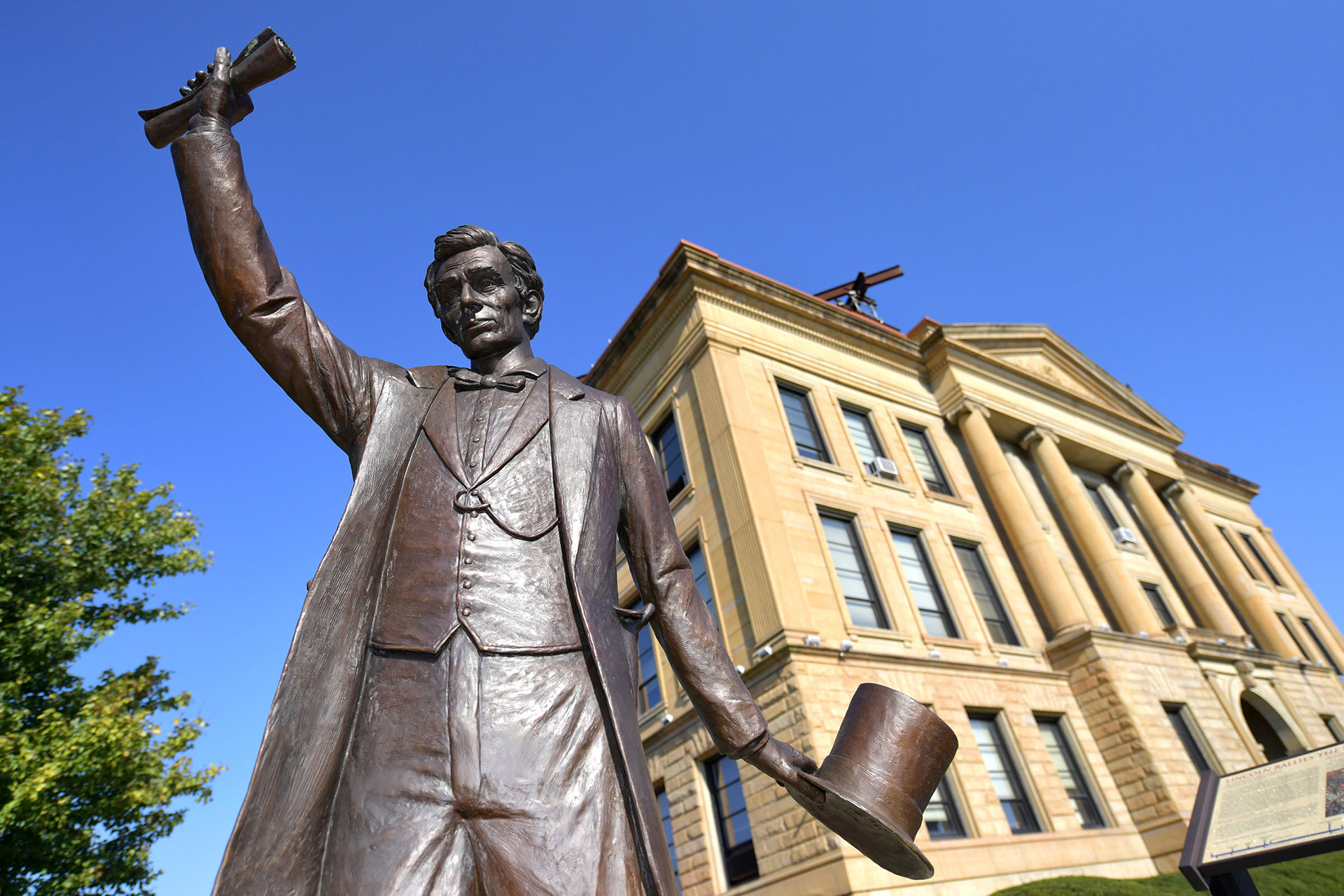Founded in 1853, the Logan County community ‘is known throughout the world’
Lincoln is a city that is steeped in history but not immune to modern challenges.
It’s the only city named for Abraham Lincoln before he became president in 1861, historic U.S. Route 66 runs right through it, and it’s the home for the Logan County Tourism Bureau and Visitors Center, located in a fully restored train depot that was built in 1911.
‘We’re working hard today to grow our population and re-ignite our economic engine’
— Mayor Tracy Welch

of the Lincoln City Hall building, once used as a lookout position for severe weather spotters
Being a railroad stop is the major reason why Lincoln prospered after its founding in 1853.
“We’re known throughout the world. We’re a destination of sorts,” said Lincoln Mayor Tracy Welch, who was born and raised in the city, joined the Lincoln City Council as an appointee in 2015, and was elected mayor in 2021 after serving a year as acting mayor.
“Lincoln residents are passionate about it being a historic town,” Welch said. “But being historic also means we’re an older town and we have to maintain our infrastructure. We just spent $16 million for a sewer project mandated by the IEPA (Illinois Environmental Protection Agency).”

Weathering the ups and downs after a watermelon juice blessing
The population of Lincoln was 13,288 in 2020, according to the decennial Census. That was a 15.6% drop from the 2000 population of 15,369 and a 9.1% fall from the 2010 population of 14,504.
“Not our fault,” Welch said of the population decline. “That’s happened because of the climate in Illinois. People are leaving because it’s such an expensive place to live.”
Another recent loss the city couldn’t prevent was the closing last year of Lincoln College, founded in 1865 and known and lauded for being the college choice of thousands of first-generation college students.
The modern problems of the COVID-19 pandemic and a cyberattack caused Lincoln College’s shutdown. The shuttering of the college has hit the city of Lincoln hard.
“From a 10,000-foot view, the closing has meant less educational options for students, fewer jobs for educators, loss of employable resources and revenue for local businesses, and less tax generating revenue for the city,” Welch said.
“When there are fewer local options, people have to travel elsewhere,” he added. “That means they’re taking tax revenue outside the city, which results in less revenue for the city’s day-to-day operations and capital improvement projects.”
Despite those challenges and others, Lincoln has survived and thrived at times since the town was founded by three businessmen and christened by Abraham Lincoln with watermelon juice taken from a nearby wagonload of watermelons.
As Lincoln was an attorney who had handled the legalities of the town’s founding, the community was named for him.
“We’re working hard today to grow our population and re-ignite our economic engine,” Welch said. “We have very active downtown business owners and residents like our small-town atmosphere, where they know each other and know their neighbors.”
Banking on the famous … and notorious
Kathie Williams owns Small Town Creations, an eclectic store that’s been in business for five years at its current location at 115 S. Kickapoo St. in downtown Lincoln. She sells home decor and gourmet coffee beans, trophies, plaques and personalized gifts.
As the name of her business suggests, Williams likes the small-town feel of Lincoln.
“The only big box store we have is the Walmart on the west side of town,” she said. “And our major grocery store, the Lincoln IGA, is locally owned.
“I know most of my customers. I make sure they’re greeted and welcomed when they come into my store. Some of them pour their hearts out to me. We’re like family.”
Lincoln’s most well-known locally owned restaurant is Guzzardo’s Italian Villa at 509 Pulaski St., a family-owned and operated establishment built in 1957.
It shares a patio with the Spirited Republic pub and brewery and Top Hat Creamery ice cream store.
“A lot of folks who don’t live in Lincoln call Guzzardo’s ‘that really good Italian place in Lincoln,’” Welch said. “They don’t know the name, but they know the place.”
Lincoln doesn’t have a chamber of commerce, but it does have LEAD, an acronym for Lincoln Economic Advancement and Development, an organization of entrepreneurs and community leaders working to attract new businesses to town. According to the LEAD website, the top employers in town are Sysco, Cresco Labs, Eaton, International Paper, Lincoln Memorial Hospital and Integrity Data. The Lincoln Correctional Center also has a significant presence.
A city named for Abraham Lincoln needs to have a museum dedicated to him. So says Ron Keller, who served as an alderman on the Lincoln City Council from 2017-21 and is the director and curator of the Lincoln Heritage Museum, located since 2014 on the campus of Lincoln College.
With the closing of the college, the museum is the only operating entity on the campus.
With a collection of rare and valuable artifacts that tell the story of the life and times of the nation’s 16th president, the museum is a drawing card, said Keller, who is a treasure trove of historic information not only about Lincoln but other prominent folks in the city’s history.
Some famous. Some notorious.
“Did you know that Lincoln never lost an election in Logan County?” Keller said before quickly pivoting to the poet, novelist, playwright and activist Langston Hughes, who spent time in his formative years in Lincoln and has a historical marker dedicated to him in the city.
“Langston wrote his first poem in 1916 when he was an eighth-grader here at Central School,” Keller said.
Lincoln also was the home of convicted bootlegger John “Coonhound Johnny” Schwenoha, a business associate and friend of Chicago gangster Al Capone during Prohibition. Capone occasionally journeyed downstate to see “Coonhound Johnny,” who took him to Lincoln and Logan County hot spots and went hunting with him.

Make a call, hitch a ride, shoot some hoops
Lincoln has a long list of attractions for visitors to check out.
Lincoln’s City Hall and firehouse were built in the same building in the 1880s. It’s one of the oldest operating firehouses in the U.S.
On top of the firehouse is a phone booth. It’s nothing more than a landmark today, but back in the day, it was functional.
“When bad weather was approaching, a junior member of the fire department — and, legend has it, an unmarried one — was sent up to the roof to check on the weather conditions and call the department with updates,” Welch said.
Built in 1905, the Logan County Courthouse, a three-story stone, domed structure, is one of the oldest courthouses in the state. Logan County voters approved raising the county’s portion of the sales tax by half a percent in 2020 to provide funding to repair and restore the building. After being delayed by the pandemic, restoration work on the iconic copper dome and a fix for a leaky roof are expected to be completed this fall.
The 24-foot-tall Railsplitter Covered Wagon is recognized by the Guinness Book of World Records as the world’s largest covered wagon. The Mill Museum on Route 66 was built in the 1920s. It was one of the first diners along the iconic road.
Dirt-track car racing fans flock to Lincoln Speedway, a quarter-mile track located on the Logan County Fairgrounds.
But another sport is king in Lincoln. Lincoln loves its basketball, specifically Lincoln High School basketball. Prep basketball fans across the state know about the legendary program, including current Railsplitters boys basketball coach Neil Alexander, a member of the Illinois Basketball Coaches Association Hall of Fame who won his 900th career game last season. He’s one of only two boys basketball coaches in Illinois High School Association history who has won that many games.
Meanwhile, led by standout junior guard Kloe Froebe, the Lincoln girls basketball team came within a victory of going undefeated and winning the Class 3A state championship last season. Coming off that 36-1 season, the Lincoln girls are a top contender for a state championship this coming year.





